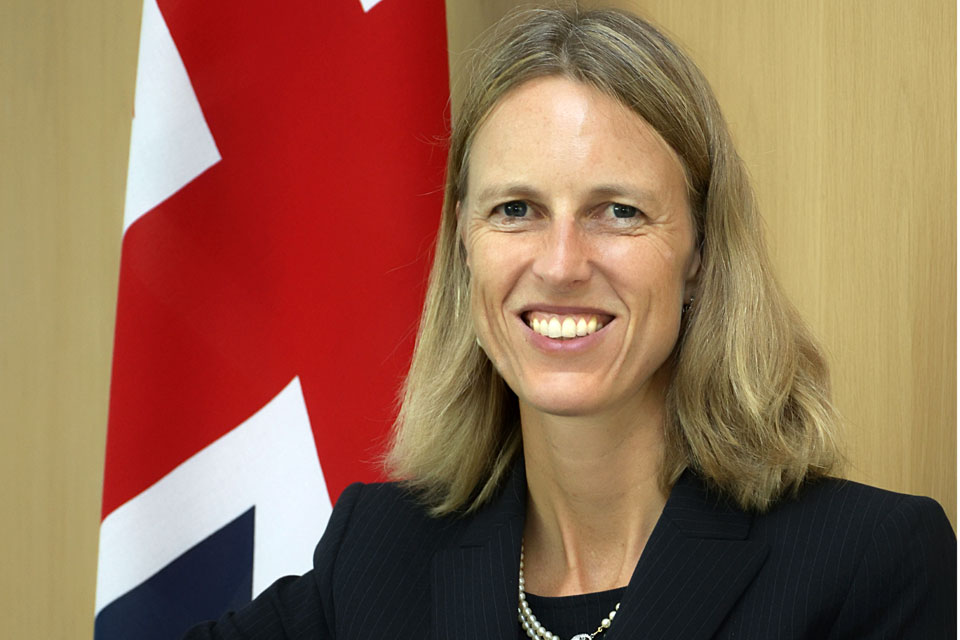UK Ambassador Alexandra Hall Hall welcomes readers of British Embassy Tbilisi Newsletter
The purpose of the British Embassy Tbilisi is to work with Georgia and advance the UK's security, prosperity and consular interests.

Welcome to the first edition of the revised British Embassy newsletter, one of the ways in which we hope to raise awareness of the activities of the Embassy in Georgia.
I myself only arrived in Georgia two months ago, so this has been an incredibly busy period, in which I have been trying to get out and about as much as possible, meet key figures within the Government, British, political, diplomatic, business, and NGO community, and settle in my family. We already feel at home, and have very much appreciated the warm welcome we have received, an example of the hospitality for which Georgia is justly famous. I have also been impressed by the high quality of the Embassy team, and the energy, creativity and commitment which they bring to the UK-Georgia relationship.
The purpose of the British Embassy in Tbilisi, as reflected in our annual Business Plan, is to “advance the UK’s security, prosperity and consular interests through working towards a Georgia that is stable, a responsible regional and international player, and making progress on conflict management/resolution, human rights and democratisation, in line with EU and NATO aspirations”.
The breadth of activities we undertake in support of these goals is highlighted in this newsletter. These range from plans to observe the upcoming Presidential elections with our Dutch and US colleagues; support for NGOs working on conflict resolution, human rights and democracy; support for Georgia’s educational sector, including through English Language Training and the Chevening Scholarship programme; and identification of new opportunities for British Business. Our Commercial Section recently gave a well received briefing on opportunities in the agricultural sector. These opportunities will only multiply as Georgia moves closer to concluding its Association Agreement, including a Deep and Comprehensive Free Trade Area, with the European Union, which we hope will be initialled at the Vilnius Summit in November. Another exciting development is the start of BP’s expansion of the South Caucasus Pipeline in Georgia. This has scope to create 2000 local jobs at the peak of construction and will bring in $2bn USD of foreign direct investment. It’s a good reminder of Georgia’s importance as a transit country, providing energy security for Europe.
I have also greatly enjoyed several visits out of Tbilisi, including to observe the work of the European Union Monitoring Missions in Gori and Zugdidi, which play a vital role in monitoring developments along the Administrative Boundary Lines with Abkhazia and South Ossetia. We remain very concerned about the process of “borderisation” there, as highlighted by the Foreign Office Minister for Europe’s statement in June that “the UK supports Georgia’s territorial integrity and rejects any events which will increase tensions and isolation in communities living along the ABLs”. The British Government is proud to support their work directly through the secondment of 15 Britons to the Mission.
We also try to contribute to Georgia in more informal ways, whether through our involvement in the current drive to help collect winter coats for children, or our participation in the annual Kazbegi marathon, which also raises money for charity.
Finally, we all enjoy living here – not least the stunning scenery, growing cosmopolitanism of the cities, and wonderful local food and wine. I see tremendous scope to develop the tourist sector, and would like to end this introduction by recommending my Deputy Doug McMillan’s entertaining account of his travels around Georgia this summer.